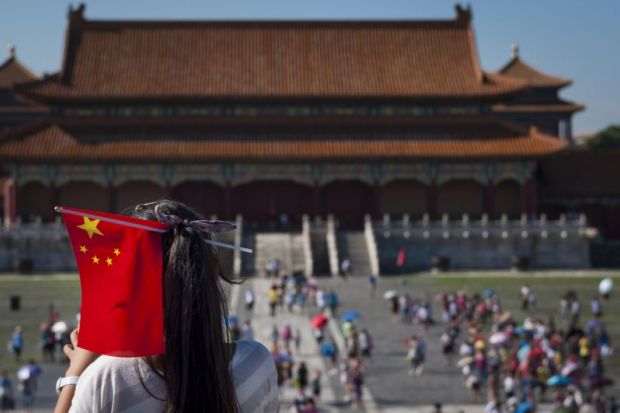A government warning about anti-China messaging being inserted into student applications by education agents highlights the disconnect between the expectations of Western universities and the understanding of this in China, experts have said.
Earlier this month China’s Ministry of State Security (MSS) publicised a case of a study abroad agency adding what it described as “anti-China content” to a student’s foreign university application without their knowledge in order to improve the student’s chances of success.
According to state media, the MSS warned that some agencies “prioritise economic interests over national security”, with such messaging perceived as harmful to China. The agency did not share details of what was said in the application.
“This is a little bit surprising, because I didn’t expect that ministry would be involved in education agents’ work,” said Siyuan Feng, research fellow at the Faculty of Education, Shenzhen University. “But I do see this as a very rare and individual case.”
David Weeks, co-founder and chief operating officer at Sunrise International Education, said this could be the result of some countries “applying stricter scrutiny to Chinese student visa applications in recent years”.
As a result, agents may feel the need to insert anti-China commentary or backstory into applications “to frame the student as less of a security risk to their destination country”.
Susan Fang, co-founder of education agency OxBridge Holdings, said she had never had any inference from universities that “anti-China” messaging would help students gain admission.
“Application services to prestigious global universities have always been uber-competitive,” she said. “While it is no secret that many tailor-make the whole application, including essays, portfolio and other supporting materials, on behalf of candidates, even going to such a length is no longer a guarantee to secure clients.
“I would assume, as an educated guess, this tactic of using anti-China messaging in applications, is just one of many that agents and consultants use to win over clients.”
“This could be a very stupid example of miscalculating,” added Dr Feng. He believed this incident reflected the “huge information gap and huge knowledge gap between the Western universities and Chinese international students”, which can leave students and agents playing “stupid guessing games”.
This issue has been exacerbated as more Western universities move away from using standard test results to judge applications and put more weight on personal statements – a relatively uncommon practice in the Chinese education system.
“So, people have to think: what kind of merits are the Western universities looking for from the Chinese perspective?” Dr Feng said. His has research uncovered that many agents feel students should demonstrate “political correctness” in their applications, so encourage students to appear progressive, for example, in terms of environmental awareness and LGBTQ rights.
Mr Weeks added that the MSS was signalling to students “that they should be aware of what is being submitted in their name…and that agents should know that some students may report this unethical practice to the authorities, especially if this involves voicing political views that the student may not hold”.
Register to continue
Why register?
- Registration is free and only takes a moment
- Once registered, you can read 3 articles a month
- Sign up for our newsletter
Subscribe
Or subscribe for unlimited access to:
- Unlimited access to news, views, insights & reviews
- Digital editions
- Digital access to THE’s university and college rankings analysis
Already registered or a current subscriber? Login








